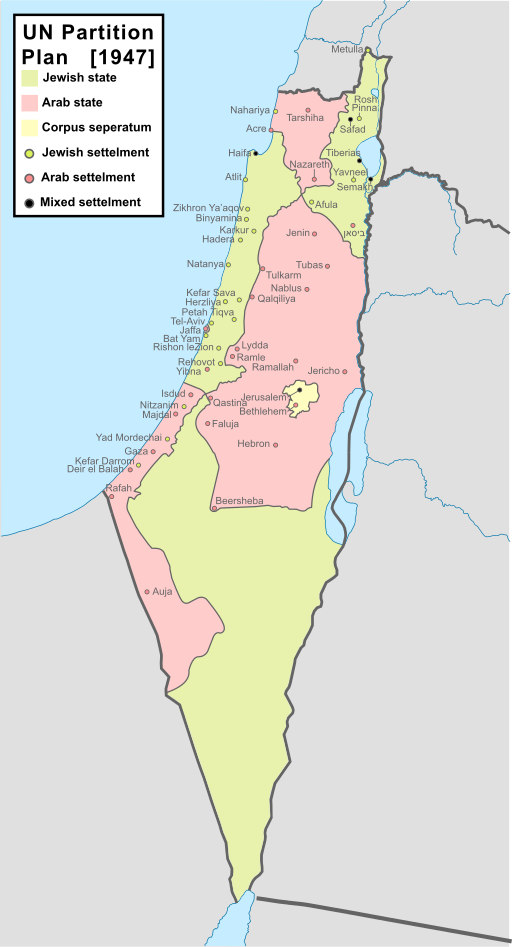On February 19, Israeli prime minister Benjamin Netanyahu bragged that “I am the one who for decades blocked the establishment of a Palestinian state.” On February 21, the Knesset approved a resolution joining Netanyahu with, in his words, “an overwhelming majority against the attempt to impose on us the establishment of a Palestinian state.”
Apparently someone forgot to inform Netanyahu, and the Knesset, of several inconvenient facts, foremost among them that the state of Palestine was established in 1988, eight years before his first term as prime minister.
The state of Palestine is recognized by 139 of the 193 United Nations member states (Israel is recognized by 165). It’s recognized as an observer state by the UN itself. It’s a member state of UNESCO, Interpol, and the International Criminal Court.
The state of Palestine generously claims less land than it’s entitled to under United Nations Resolution 181 (it’s willing to settle for a return to pre-1967 truce lines), while Israel occupies quite a bit more than it’s entitled to under that resolution.
UNR 181, by the way, is the international legal instrument which authorized the creation of Israel, which set its only internationally recognized borders, and which Israel agreed to as a condition of UN membership. To the extent that Israel violates UNR 181, Israel abdicates its status as a “legitimate” state.
To be fair, the state of Palestine also defies UNR 181, demanding part of Jerusalem for its capital … as does Israel. Per UNR 181, Jerusalem is supposed to be an “international city,” belonging to neither state and governed under UN auspices.
Whenever there’s talk of a “two-state solution” to the Israeli-Arab conflict in Palestine, Israel and its backers — especially the US — pretend that any “second state” is a proposal for the future, a proposal that can be rejected, temporarily or permanently.
That little bit of propagandizing becomes less and less useful as time goes on. The state of Palestine is not a proposal, it’s a fact. Yes, much of the state of Palestine remains under foreign occupation, but few asserted that Poland and France ceased to exist while under German occupation during World War 2, or that Japan and Germany ceased to exist while under Allied occupation after that war.
I’m skeptical that two states really promise any “solution” to the conflict (I prefer a “no-state solution”), but the opening move toward ANY solution is recognizing reality. Trying to fantasize away the state of Palestine’s existence isn’t going to work.
Thomas L. Knapp (Twitter: @thomaslknapp) is director and senior news analyst at the William Lloyd Garrison Center for Libertarian Advocacy Journalism (thegarrisoncenter.org). He lives and works in north central Florida.
PUBLICATION/CITATION HISTORY

